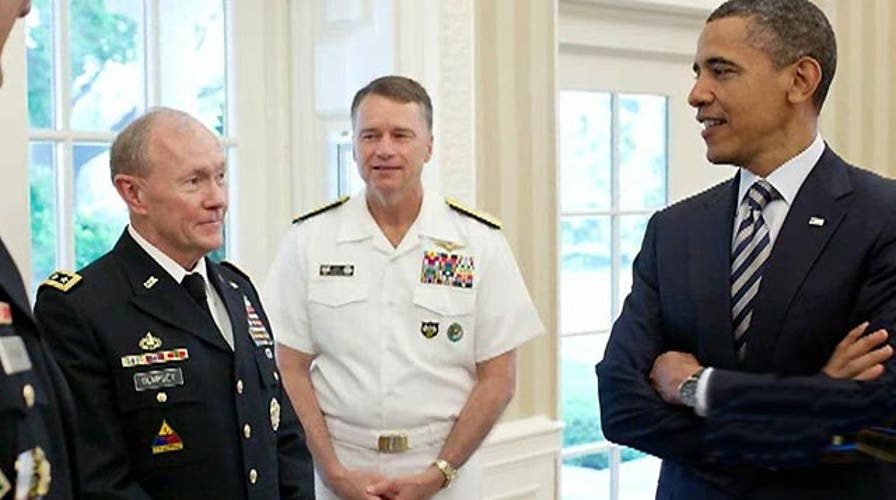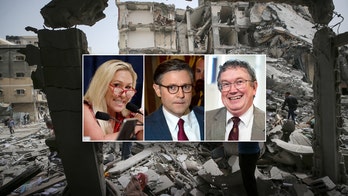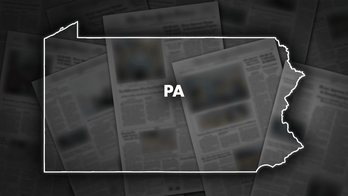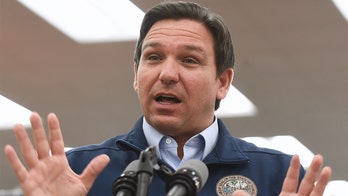On the eve of the terrorist attacks that killed U.S. Ambassador to Libya Christopher Stevens and three other Americans in Benghazi, the Obama White House may have exaggerated the scope and depth of President Obama's preparation for such attacks, newly declassified documents show.
On Sept. 10, 2012 -- the day before Al Qaeda-linked terrorists carried out the bloody assault on the U.S. consulate and a related annex in Benghazi -- the White House Press Office issued a press release entitled "Readout of the President's Meeting with Senior Administration Officials on Our Preparedness and Security Posture on the Eleventh Anniversary of September 11th."
A set of "Top Secret" documents obtained by Fox News reveals that the nation's highest-ranking uniformed military officer, Gen. Martin Dempsey, chairman of the Joint Chiefs of Staff, testified to Congress in executive session last year that the Sept. 10 meeting "was actually a conference call." Moreover, Dempsey testified, Libya was never even discussed during the call, despite a persistent and increasingly worrisome stream of threat reporting from that country, and from Benghazi in particular.
The Sept. 10 press release stated that the session had covered the "specific measures we are taking" and "steps taken" to protect Americans and U.S. facilities abroad. It also related an order from President Obama for all agencies to "do everything possible to protect the American people, both at home and abroad."
Yet the declassified documents show that Dempsey testified to the Congress last year that not a single directive had been issued by him or Defense Secretary Leon Panetta to adjust American military force posture anywhere in the world as the 9/11 anniversary loomed just hours away.
These revelations emerged in some 450 pages of closed-door testimony taken from Dempsey, and other key military officials, by the House Armed Services Subcommittee on Oversight and Investigations. The panel, chaired by Rep. Martha Roby, R-Ala., conducted nine classified hearings and briefings on Benghazi and is drawing on the transcripts of the testimony to complete what staffers call an "interim" report on the subject.
Fox News reported in October the panel's preliminary finding that U.S. forces were postured on Sept. 11, 2012 in such a way as to make military intervention or rescue impossible.
"It was misleading," Roby said of the Sept. 10 press release, "and quite frankly, as demonstrated on September 11th, it was wrong."
Asked on Tuesday about the declassified testimony, White House Press Secretary Jay Carney, whose office issued the Sept. 10 document, accused Fox News of trying to "color outside the lines" and brushed aside the fact that neither Panetta nor Dempsey took action to adjust force posture after the conference call with the president. "Our military and our other services devoted to our national security don't wait until September 10th to prepare for contingencies on an anniversary like September 11th - of any year," Carney said.
He did not specify what other measures may have been taken. At a White House briefing held six days after the Benghazi attacks, on Sept. 18, 2012, Carney had told reporters, also without elaboration: "There were numerous steps taken, as there have been every year on the anniversary of 9/11."
At the Armed Services subcommittee's fifth "Top Secret" hearing, conducted behind closed doors on Oct. 10 of last year, second-term Rep. Austin Scott, R-Ga., asked Dempsey about any adjustments to force posture that he or the Pentagon might have made on the eve of the Benghazi attacks. In framing the question, Scott employed military lingo ("N plus six," "N plus four") that refers to reaction times in the event of a crisis. In framing his response, Dempsey referenced a classified set of slides the Pentagon had created for the briefing, showing where major military assets had been positioned on the eve of 9/11.
SCOTT: "When you were going into September 11th, there were meetings at the white House discussing the fact that we were going into September 11th. Did we actually shorten any of the [response] times? Did we move anybody from, say, an N plus six to an N plus four, knowing that the September 11th anniversary was coming up?"
DEMPSEY: "Do you have that slide? Let me take a look at that slide. I don't recall directing that from the national level. Now there were, as you know, the combatant commanders have the authority to do that based on their assessment. So there was no direction to do that from me or the SecDef [then-Secretary of Defense Leon Panetta]."
Scott pressed the chairman further:
SCOTT: "[Did] you anticipate that September 11th being the date that it is, going forward we would [have wanted to] drop those notification times?"
DEMPSEY: "Let me just check my slide here. Recall that in the runup to September 11th, the threat streams took us other places other than Libya."
In fact, one of Dempsey's top officers told the same panel he and Panetta had been gravely concerned about the security situation in Libya, a fact that raises anew the question of why the country never came up during the Sept. 10 conference call. The officer providing that testimony, however -- Gen. Carter Ham, head of AFRICOM, the combatant command with jurisdiction over Libya -- was excluded from the Sept. 10 conference call, and from the series of lower-level meetings that had been convened by then-White House Counterterrorism Adviser John Brennan (now director of the Central Intelligence Agency).
"I believe [Secretary Panetta] agreed with my assessment that the [Libyan] militia who were operating largely outside of central government control continued to pose a very significant threat because they weakened the central authority," Ham testified in executive session before the Armed Services subcommittee on June 26 of last year. "And by weakening the central authority it created opportunities for al-Qaeda and other Islamic extremist organizations to in some cases reinsert themselves or operatives into Libya, which I think all of u saw that as a dangerous environment."
What's more, Dempsey himself acknowledged in open session before the Senate Armed Services Committee on Feb. 7 of last year that the threat stream had taken him and his colleagues directly to Benghazi. When Sen. John McCain, R-Ariz., asked Dempsey if he had been aware of a cable that slain U.S. Ambassador Chris Stevens had sent back to Washington on Aug. 12, 2012, warning that the Benghazi compound could not survive a sustained attack, Dempsey replied: "I was tracking that intelligence."
Still another high-ranking military officer with relevant jurisdiction also told the House Armed Services subcommittee that his own expressions of concern about Libya were effectively ignored in that critical period. Marine Corps Col. George Bristol, commander of AFRICOM's Joint Special Operations Task Force for the Trans Sahara region, testified before the panel in executive session on July 31 of last year that he warned State Department officials in Tripoli that "if [the terrorists] were going to try something ... this would be a day." Asked by Rep. Rob Wittman, R-Va., if he had seen "any intelligence" that led him to believe "there was an increased threat on 9/11," Bristol replied, "Yes, sir."
BRISTOL: "Did they take individual security measures inside of the Libyan embassy [sic]? Sir, that I do not know."
WITTMAN: "But you did have conversations with folks there [at the U.S. Embassy in Tripoli]?"
BRISTOL: "Yes, sir."
[...]
WITTMAN: "In your professional opinion, based on that, were you somewhat uncomfortable maybe, knowing about the threat, that that was the posture then that was going to be there within that theater?"
BRISTOL: "Sir, I -- yes, and that wasn't the only country that I was worried about that."
In crafting the Sept. 10 press release, the White House appears to have tiptoed around the fact that the subject of the 9/11 anniversary had been relegated to a conference call, as the opening sentence alluded to the auditory manner in which the commander in chief had digested the session's substance: "Earlier today the President heard from key national security principals on our preparedness and security posture on the eve of the eleventh anniversary of September 11th."





